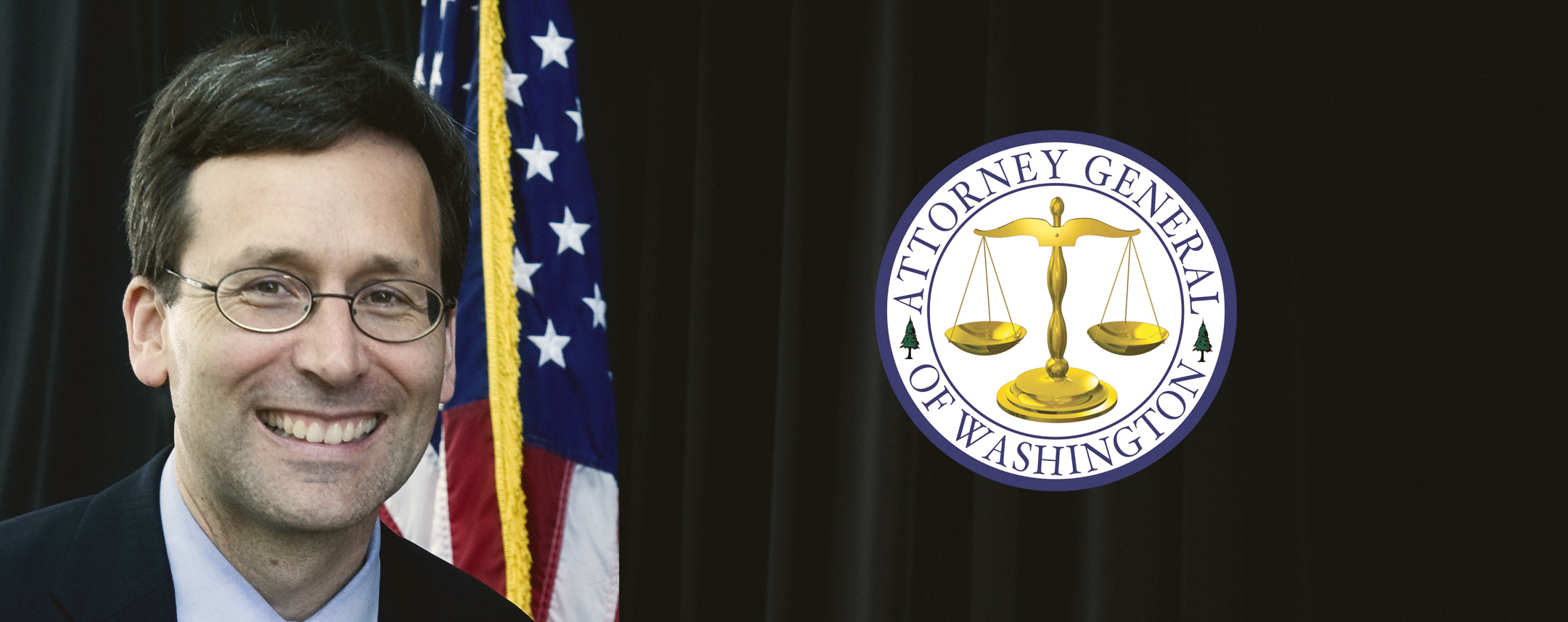The Washington State Attorney General’s refusal to comment on how the U.S. Supreme Court’s June ruling in Harris v. Quinn applies to this state has indirectly confirmed Freedom Foundation’s contention that as many as four different groups of legally similar Washington workers are impacted.
Early in August, state Sen. John Braun (R-Centralia) formally requested that the state Attorney General issue an opinion on whether the court’s ruling in Harris, which permitted Medicaid-subsidized personal assistants in Illinois to choose whether to pay union dues, applies to similarly-situated home care providers in Washington.
Citing ongoing litigation against the state by a group of individual providers (IPs) in Centeno v. Quigley, the AG denied Braun’s request and refused to comment on Harris’ effect in Washington.
On Oct. 29, Braun’s office submitted a follow-up request to the AG about whether Harris applied to the other three groups of independent employees that receive state subsidies and are considered by state law to be public employees “solely for the purposes of collective bargaining”: family child care providers, language-access providers and adult family home providers.
Though there is not currently any litigation pending on behalf of these three groups, the AG again refused to comment because of the ongoing Centeno case, effectively placing all four groups in the same legal situation and tying their fate to the outcome in Centeno.
From the AG’s response to Braun’s second request:
“Your more recent request poses the same questions as your August request, but instead of asking about individual providers of home care services you ask about the application of Harris to family child care providers, language access providers, and adult family home providers. Those categories of providers, like individual providers of home care services, are regarded as state employees for the limited purpose of collective bargaining. Thus, while the categories of providers are different than those at issue in Centeno, the legal issues are necessarily intertwined. We must therefore respectfully decline to provide the opinion requested in your October 29, 2014, letter for the same reasons that we set forth in response to your August 5, 2014, request. [Emphasis added]
Regardless of the AG’s refusal to comment, the unions and the state appear to agree that Harris at least requires them to permit affected workers to cease paying any union dues upon request.
It is telling that the union security clauses have been stripped from all four of the tentative contracts negotiated with the state by affected unions over the summer:
- Individual providers (SEIU 775)
- Family child care providers (SEIU 925)
- Language-access providers (WFSE)
- Adult family home providers (WSRCC)
On the ground, SEIU 775 and SEIU 925 are ceasing the dues deductions from state-paid home care and child care providers if the providers mail a signed letter to the union and demand to stop paying.
However, both unions appear to be continuing to collect full dues from all represented providers by default, regardless of whether the provider has signed up for union membership. Instead of opting in to paying dues, providers are being required to opt out.
And both unions are fighting attempts by the Freedom Foundation to inform these state-paid workers of their rights under Harris to opt-out.
So far, we are unaware of any attempt SEIU 925 has made to inform family child care providers of their legal rights under Harris. For its part, SEIU 775’s efforts to inform IPs consisted of a single, multiple-page, high-gloss mailer with a “legal notice” at the end. If providers did not respond to the mailing, the union “will take it to mean [they] wish to provide financial support to the Union and will be charged through a payroll deduction.”
Shortly following the Harris decision in June, the Freedom Foundation requested the contact information of state-subsidized IPs and family child care providers from the state in order to directly inform them of their rights under Harris.
The Department of Early Learning (DEL) promptly provided the requested information, but the Department of Social and Health Services (DSHS) repeatedly delayed the release of the records. At the end of September, after consulting with DSHS, SEIU 775 sought a court injunction to prevent the release of IPs’ contact info. The Freedom Foundation intervened in the litigation. A Thurston County judge recently ruled that the Freedom Foundation has a right to access the list of IPs under the Public Records Act. SEIU 775 is currently appealing the ruling.
After the SEIU 775 litigation, SEIU 925 sued DEL and the Freedom Foundation seeking an injunction against the Freedom Foundation using the contact information of family child care providers and a court order requiring the return of the records. A Thurston County judge recently denied the union’s request for a temporary injunction, and the Freedom Foundation has begun informing family child care providers of their new ability to opt-out of SEIU 925 dues if they choose.
At stake is the ability of two major unions to continue skimming tens of millions of dollars in dues money from 45,000 independent providers serving state-subsidized clients. The ongoing Centeno litigation and SEIU’s suits against the Freedom Foundation’s records requests will likely ensure that the issue remains alive for the foreseeable future.











